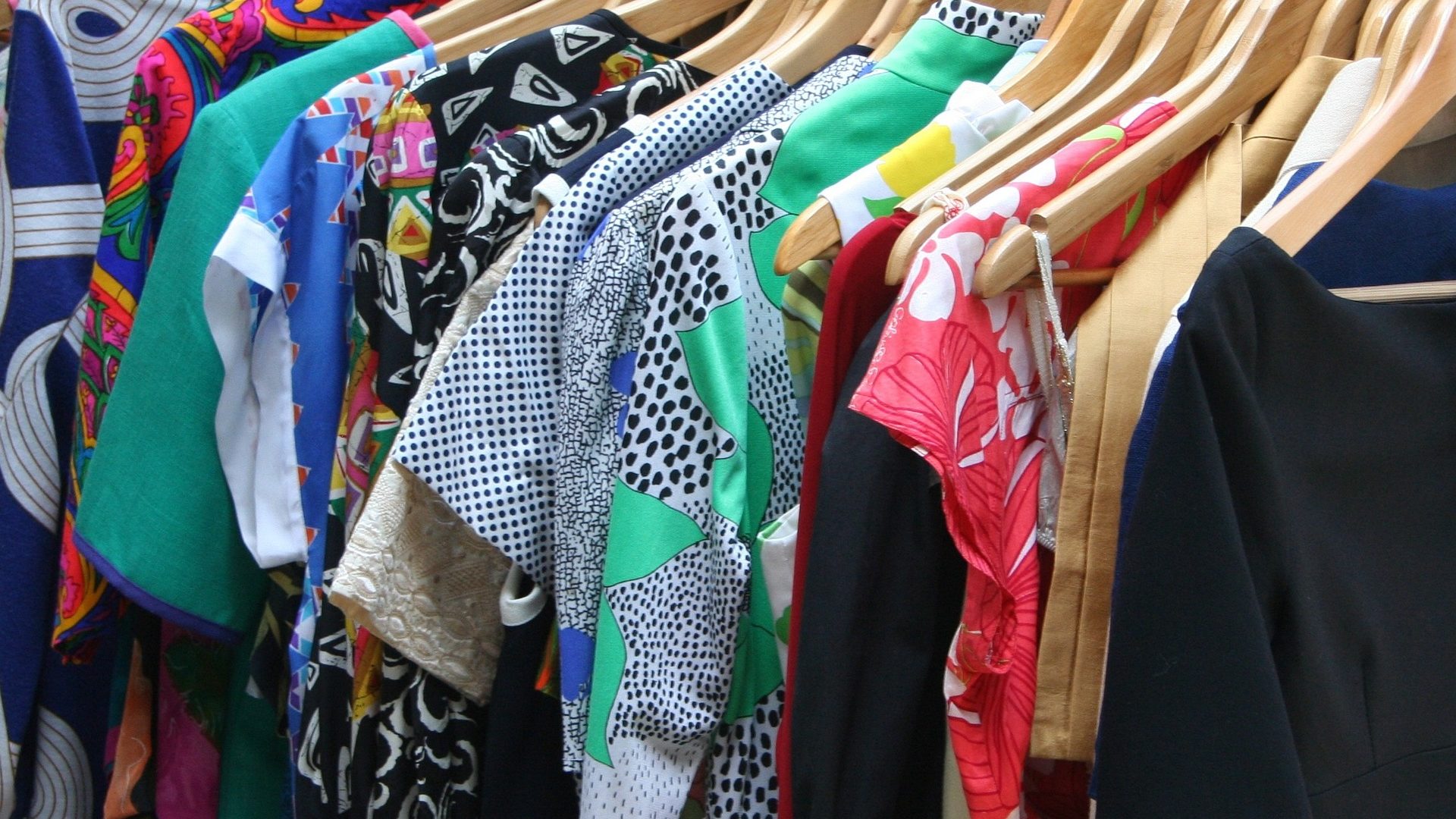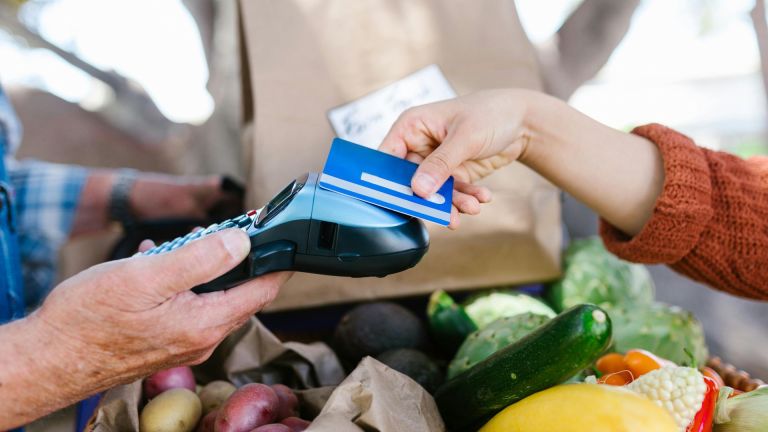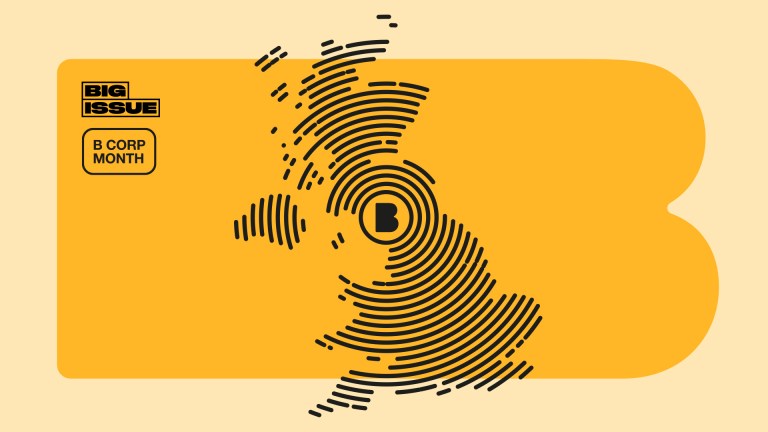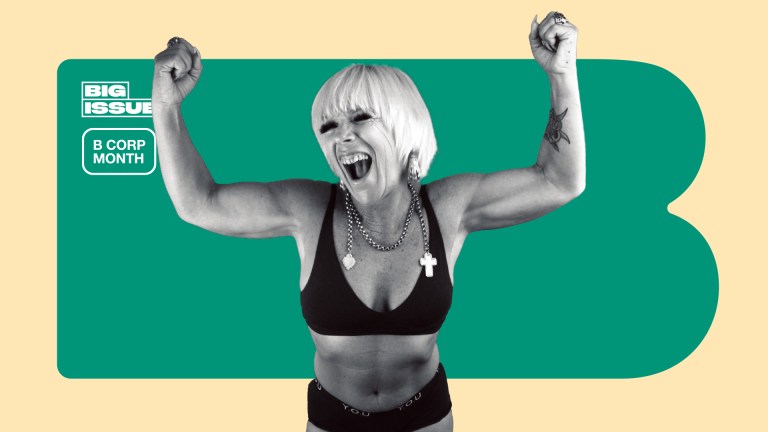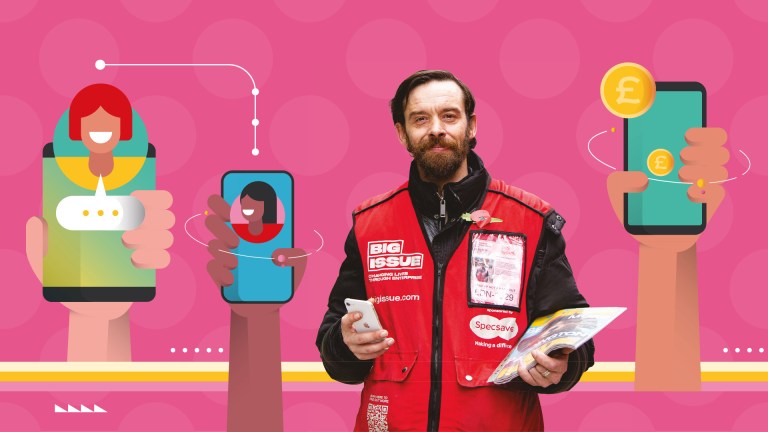Because of the low prices attached to these items, you can usually bet that the workers who made them weren’t paid a fair wage.
The low cost and poor quality of material also usually indicates poor environmental standards in production.
This means fast fashion is bad for people and the planet, as well as usually being a poor investment if you want to wear something more than a few times.
Why are fast fashion brands so bad for the planet?
There are a number of ways in which fast fashion impacts the planet, from production all the way up to the way a person disposes of an item.
Many cheap items of clothing are made from materials which have a damaging effect on the natural environment.
This includes polyester, which is made from plastics, and cotton, which requires huge amounts of water to produce.
Advertising helps fund Big Issue’s mission to end poverty
Certain dyes used to colour clothing are also toxic for the environment, while the production process used to make denim often involves intensive washing with huge amounts of water to create a distressed look.
Because of the scale of demand for fast fashion, vast amounts of land are also required to grow the necessary materials, leading to deforestation and clearances of indigneous people.
Tonnes of greenhouse gas emissions are then created when clothes are shipped and flown around the world to be sold.
When consumers wash these clothes, they often release tiny amounts of plastic in the water, which then gets washed into rivers and seas.
Billions of tonnes of clothes are also thrown away every year, and are often sent to developing countries to be burned, releasing yet more carbon emissions.
Which retailers are fast fashion brands?
Many big brands have been accused of producing fast fashion, including H&M, Zara, Forever 21, Mango, Primark, Urban Outfitters and online giant Shein.
Advertising helps fund Big Issue’s mission to end poverty
A lot of these brands have claimed in recent years that their clothing is sustainably made and sourced. A lot of these claims, however, have been met with scepticism and accusations of greenwashing by environmentalists.
How can I spot a fast fashion brand?
If you want to find out whether your favourite brand is guilty of producing fast fashion, here are the telltale signs to watch out for:
- The brand stocks thousands of different items which are regularly changed or updated
- There’s an extremely short turnaround time between a fashion item appearing on a catwalk or being worn by a celebrity and a similar item being stocked by the brand
- The clothing looks or feels like it’s made out of a cheap material like polyester
- The garments are made overseas in countries with poor labour rights and conditions
- The clothing is sold extremely cheaply
In general, you should always critique any claims by a brand that their clothing is made sustainably.
Ethical clothing site Good On You offers a tool for searching brands and checking their environmental credentials which can be handy.
Where can I find sustainable clothing?
In general, the most sustainable clothing you can buy is no clothing at all.
What that means is that you should think very carefully about whether you really need to purchase an item of clothing, as purchasing any new item comes with a carbon footprint.
Advertising helps fund Big Issue’s mission to end poverty
If you’ve got an event coming up, you could ask a friend if you could borrow their clothes. Alternatively, you could consider renting an outfit instead.
If you must buy, try to always buy second hand. This means looking in charity shops or using apps like Depop and Vinted to buy pre-loved items.
Sometimes buying new is necessary. In this case, you should always try to seek out brands with real ethical credentials and buy clothing which you are likely to wear for a very long time.
The Big Issue Shop, for instance, stocks ethical retailers. Good On You also has a number of blogs detailing which clothing retailers have the best ethical credentials.
